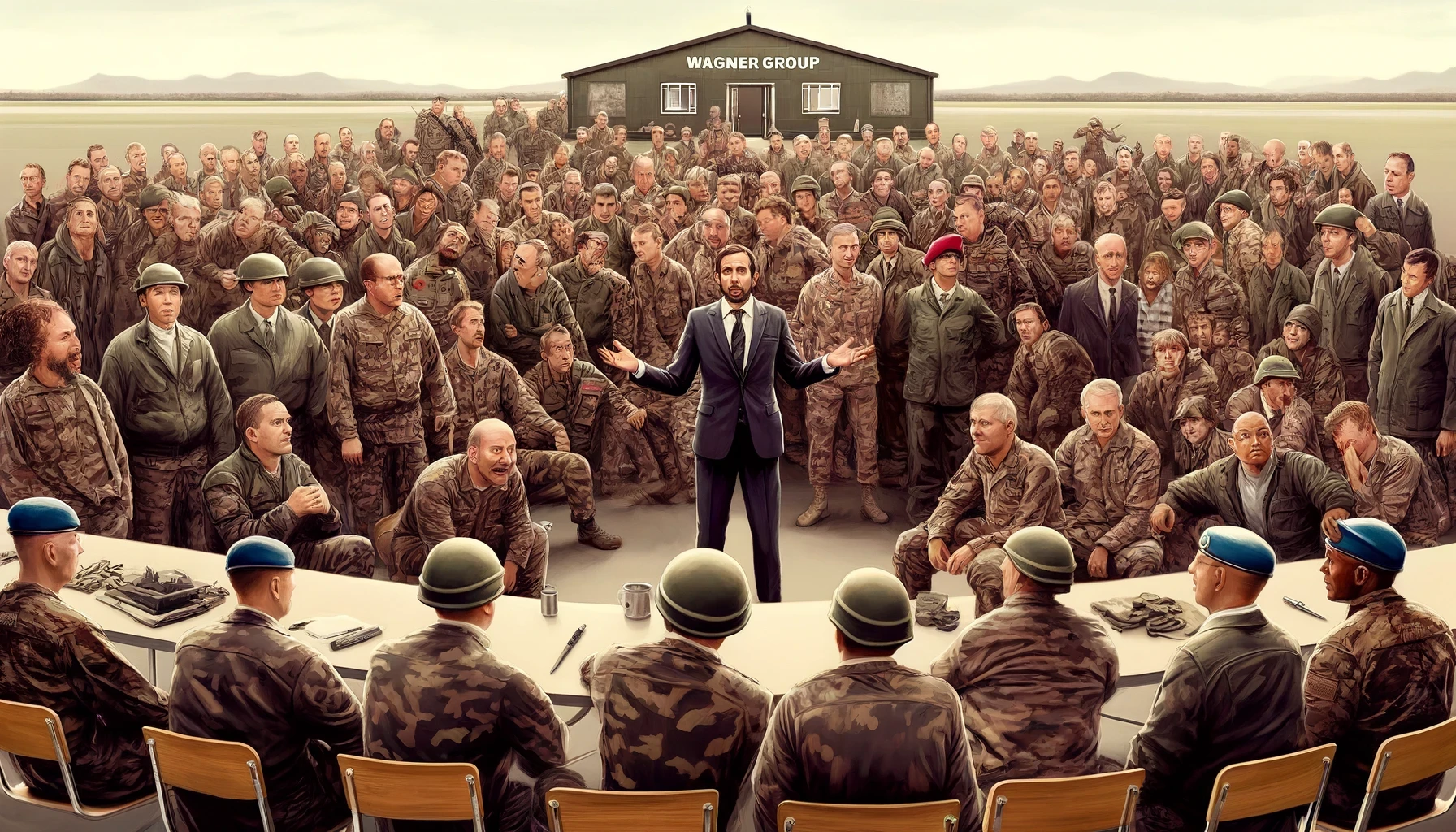In a move that has left international observers scratching their heads, the government of Mali decided to replace the French military presence with the Wagner Group, a private Russian military company. This decision, heralded by some as a step towards sovereignty and by others as an unwise gamble, has quickly proven to be a masterclass in mismanagement.
Reports emerging from Mali paint a grim picture: rebels are accusing the Malian army and the Wagner Group of killing civilians. The terrorists have managed to lay siege to several towns, with Wagner forces failing to respond in time or prevent significant casualties. The comparison to the French military’s tenure, which was far from stellar, has ironically cast French troops in a much more favorable light.
“It’s like replacing a rusty car with a bicycle,” remarked an anonymous Malian official. “The French car might have been slow and unreliable, but at least it had an engine.”
This sentiment is echoed by locals who have witnessed the chaos firsthand. The Wagner Group, known for its controversial and often brutal methods, seems ill-equipped to handle the delicate and volatile situation in Mali. Their presence has not only failed to deter terrorist activities but has arguably emboldened them, leading to increased violence and instability.
Meanwhile, the French, who were unceremoniously shown the door, must be watching the unfolding disaster with a mixture of schadenfreude and concern. “We may not have been perfect,” said a former French military advisor, “but at least we knew how to maintain a semblance of order. Wagner’s approach seems to be ‘when in doubt, do nothing – or worse, do the wrong thing.’”
The situation has reached such a point of absurdity that even the most cynical observers couldn’t have predicted this level of incompetence. The Wagner Group’s apparent inability to coordinate effectively with Malian forces or engage the enemy proactively has led to a surge in civilian casualties and a breakdown of any remaining trust between the military and the population.
Critics of the Malian government’s decision are now vocalizing what many have been thinking: perhaps this was not a move towards sovereignty and strength but rather a hasty and ill-conceived reaction to international pressure. The idea that a private military company with dubious credentials could outperform a national military force, albeit a foreign one, was always questionable. The reality has proven it to be downright laughable.
In conclusion, while the French military’s performance in Mali was often criticized, it has taken the arrival of Wagner to truly highlight the old adage: you don’t know what you’ve got until it’s gone. As Mali grapples with this new chapter in its troubled history, one can only hope that lessons are learned before more lives are unnecessarily lost.

